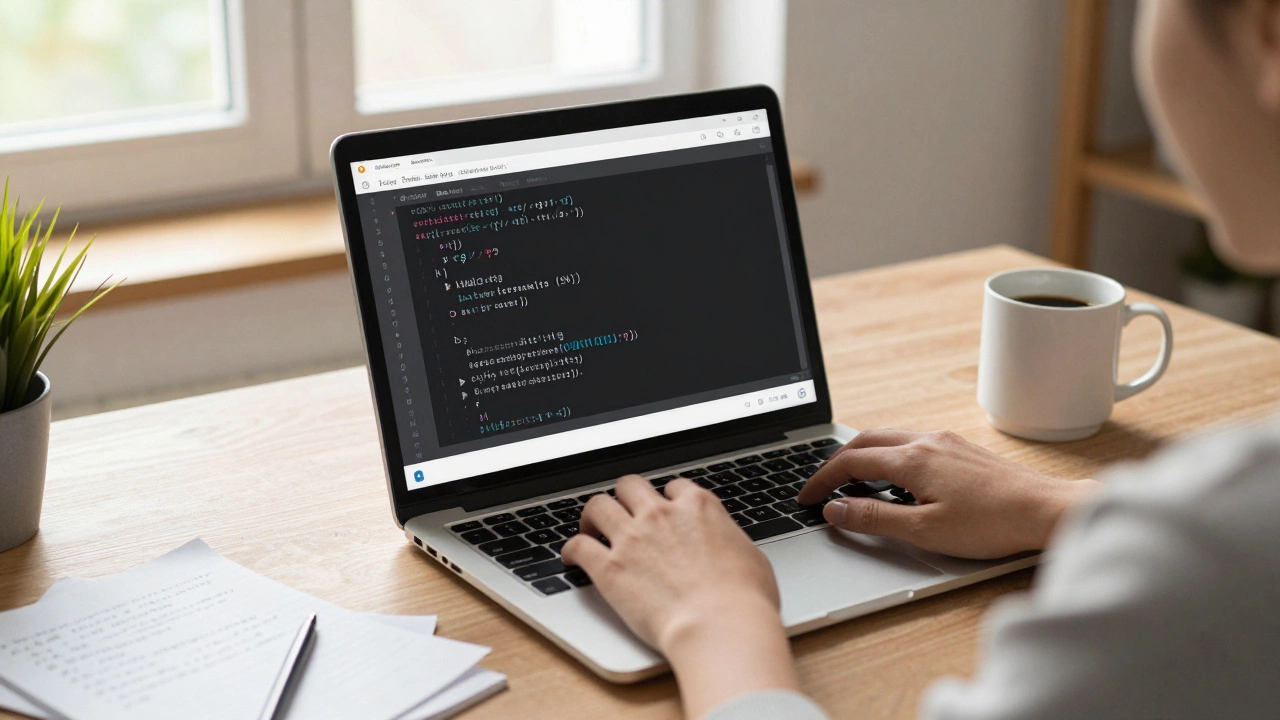Beginner Coding: Simple Steps to Start Programming
If you’ve ever wondered how to write a line of code, you’re in the right place. Coding isn’t a secret club; it’s a skill anyone can pick up with the right approach. Below you’ll find a clear roadmap that takes you from zero knowledge to building a tiny project you can actually show off.
Pick a Language That Matches Your Goal
First, decide what you want to do. Want to make a website? Try HTML, CSS, and a touch of JavaScript. Curious about data or automation? Python is a friendly choice. Mobile apps? JavaScript with React Native or Kotlin for Android works well. The key is to start with one language and stick with it for a few weeks.
All three languages—Python, JavaScript, and HTML/CSS—have free tutorials and large communities. That means you’ll find answers to almost any question without paying a dime.
Set Up a Simple Development Environment
You don’t need a fancy computer. A regular laptop or even a tablet can handle the basics. Install a free code editor like Visual Studio Code or Sublime Text. For Python, download the latest version from python.org. For web work, the browser is already your testing ground.
Once your editor is ready, write a "Hello, World!" program. In Python, it’s just print('Hello, World!'). In JavaScript, open the browser console and type console.log('Hello, World!'). Seeing that message appear tells you the setup works and gives a confidence boost.
Next, break your learning into bite‑size chunks. Spend 15‑30 minutes a day on a single concept: variables, loops, or functions. Practice by modifying the "Hello, World!" code—change the text, add a second line, experiment with numbers. Small wins add up quickly.
When you feel comfortable, pick a tiny project. For Python, a calculator that adds two numbers is perfect. For JavaScript, try a button that changes the page’s background color. For HTML/CSS, build a personal bio page with a photo and a short intro. Projects give context to the syntax you’ve learned and keep motivation high.
Don’t forget to use online resources. Sites like freeCodeCamp, Codecademy, and Khan Academy offer step‑by‑step lessons that match the beginner coding tag. You can also watch short YouTube videos that walk through the same projects you’re building.
Finally, join a community. A Reddit thread, Discord server, or a local meetup gives you a place to ask "Why isn’t this working?" and get quick feedback. Sharing your progress, even a simple screenshot, encourages you to keep going.
Remember, coding is a skill that improves with practice, not with memorizing every command. Focus on solving small problems, ask questions when you’re stuck, and celebrate each finished piece of code. In a few weeks you’ll have a portfolio of tiny projects that prove you’re no longer a total beginner.
Ready to start? Open your editor, type that first line, and watch the magic happen. Happy coding!
Jan
23

- by Dhruv Ainsley
- 0 Comments
Can I learn to code if I'm bad at math?
You don't need to be good at math to learn to code. Real coding is about logic, not equations. Learn how beginners with no math background are building websites, apps, and tools today.
Jan
17

- by Dhruv Ainsley
- 0 Comments
Choosing Your First Programming Language to Learn in 2025
In 2025, choosing the right programming language to start with is crucial for anyone interested in diving into the world of coding. This article guides beginners through understanding the purpose of different popular languages, offers tips on aligning language selection with career goals, and emphasizes the importance of practice and community support. It also explores how technological advances can influence learning preferences and language trends. Dive in to make an informed decision for your coding journey.